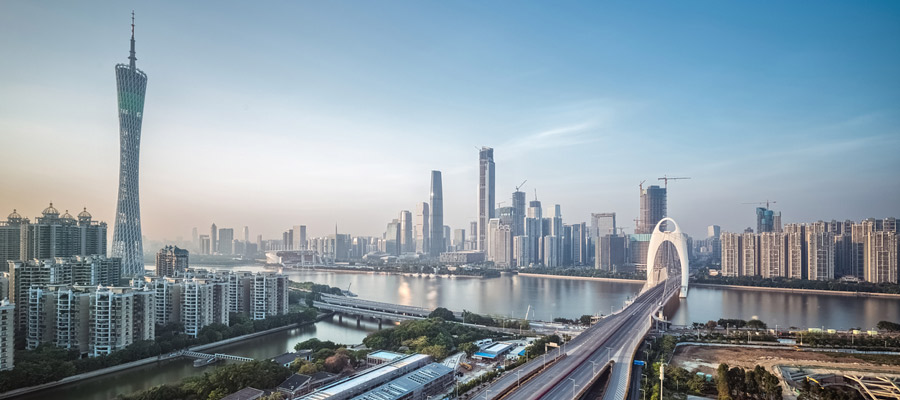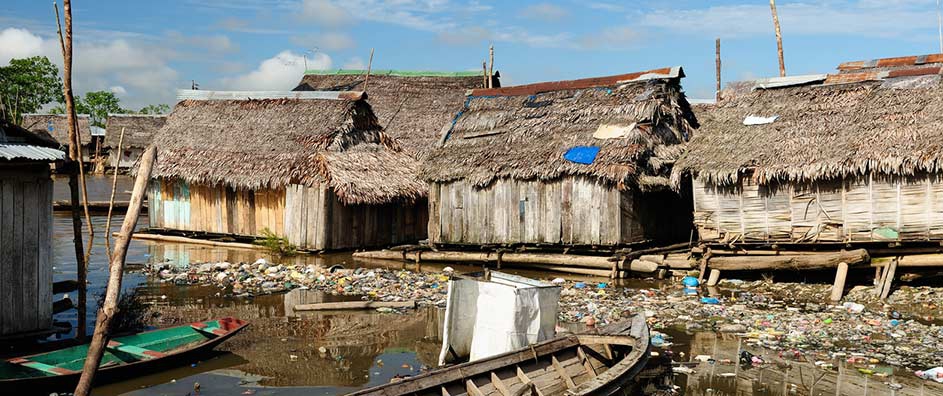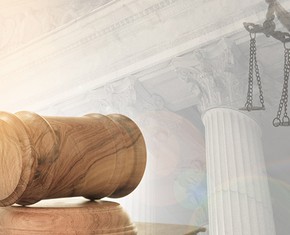The views expressed in our content reflect individual perspectives and do not represent the authoritative views of the Baha'i Faith.
When man alters the Earth’s climate, who suffers? What does climate justice mean? The whole world has begun to grapple with those two questions.
World-wide, the poor suffer first and most from climate change. For example, poor farmers in Africa are already being strongly affected by increasingly severe heat waves, droughts, and unpredictable rainfall, all of which result in malnutrition and hunger. Dwindling natural resources such as water and food have contributed to the disastrous civil war in Sudan. On February 22, 2017, The New York Times reported that the United Nations declared famine in a patch of South Sudan. Meteorologists anticipate an “especially hot and dry 2017 across much of eastern Africa” that will likely worsen the situation.
Rising food prices because of climate-induced crop failures increasingly affect the poor all over the world. Inhabitants of small islands such as Kiribati and Tuvalu suffer from rising sea levels—their islands are shrinking, houses are frequently flooded, their precious freshwater is contaminated with salt water, and their crops are failing. As a result, they face an uncertain future–some have already left their islands, and many more will have to leave their homes and abandon their cultures in the coming years and decades.
If you wonder why sea levels are rising, these are the reasons: The world’s oceans absorb about 90 percent of the increased heat energy caused by global warming. Water expands as it warms. Also, ice is melting almost everywhere on the planet, and the meltwater naturally flows into the ocean.
Climate change threatens the well-being of future generations. If humankind simply continues its current way of life, global average temperature will likely rise by at least 4°C (7.2°F), and sea-levels will rise by several feet as the end of the century approaches, causing flooding of many huge coastal cities such as Guangzhou (China), Mumbai and Kolkata (India), New York City and Tampa, Florida (USA), and Abidjan (Ivory Coast). Even if humanity stops burning fossil fuels, the warming and corresponding sea-level rise will continue for many centuries, inundating coastal areas everywhere.

Guangzhou, China
World leaders realized that climate change could jeopardize the survival of human civilization and agreed at the 2015 Climate Change Conference in Paris, that everything must be done to keep the warming “well below 2°C (3.6°F)” compared to pre-industrial levels and as close to 1.5°C as possible. However, even if all the countries of the world keep their Paris Conference commitments to cut emissions, the Earth will likely warm by almost 3°C, a scenario in which Small Island States will be doomed, and many places around the world will become uninhabitable.
Global warming is caused by greenhouse gas emissions from human activity, mainly from the burning of fossil fuels–coal, oil, and gas—and from deforestation and agriculture, especially the raising of livestock. While there are some poor people who are forced to cut down forests for survival, it is the wealthier people of the world who are primarily responsible for climate change. The huge and growing number of people driving cars, flying to vacations, and buying lots of clothing, meat, electronic gadgets, and other stuff have overburdened the Earth’s natural systems. Humanity has overstepped our planet’s boundaries.
A century and a half ago, Baha’u’llah, the prophet and founder of the Baha’i Faith, called on humankind to observe justice and not to allow material civilization to exceed the bounds of moderation:
Whoso cleaveth to justice, can, under no circumstances, transgress the limits of moderation. … The civilization, so often vaunted by the learned exponents of arts and sciences, will, if allowed to overleap the bounds of moderation, bring great evil upon men. … If carried to excess, civilization will prove as prolific a source of evil as it had been of goodness when kept within the restraints of moderation. …The day is approaching when its flame will devour the cities, … – Gleanings from the Writings of Baha’u’llah, pp. 342-343.
Since Baha’u’llah wrote these words, humanity has clearly overleapt “the bounds of moderation in civilization” in many ways—and now our material civilization is bringing “great evil upon men.” Justice demands that we live with more moderation.
The problem: most of us living in developed countries are embedded in a culture of materialism and consumerism. We have lost the sense of what a moderate life-style should entail, and we, to a large part unknowingly, contribute to the misery of others and ourselves by participating in what we consider to be the “normal” life of our society. That must change, and it can if we wake up and start promoting climate justice. There are many things we can do:
- Learn more about climate change and how it affects people and the planet, and stand up for the truth.
- Raise awareness of our spiritual obligation to work for justice.
- Moderate our own life-styles by buying less stuff and consuming responsibly.
- Promote environmentally friendly practices in our family and community.
- Support meaningful climate action in your community or country.
The Wilmette Institute will offer an 8-week online course on Climate Change starting 15 April. The course provides a basic scientific understanding of the causes and impacts of climate change, discusses its ethical challenges, and relates them to the spiritual teachings of the world’s religions, particularly the Baha’i Faith. Scholarships are available to those who need them. Everyone is welcome to join.
You May Also Like
Comments

















But simple observations are one thing; what then are we to DO?